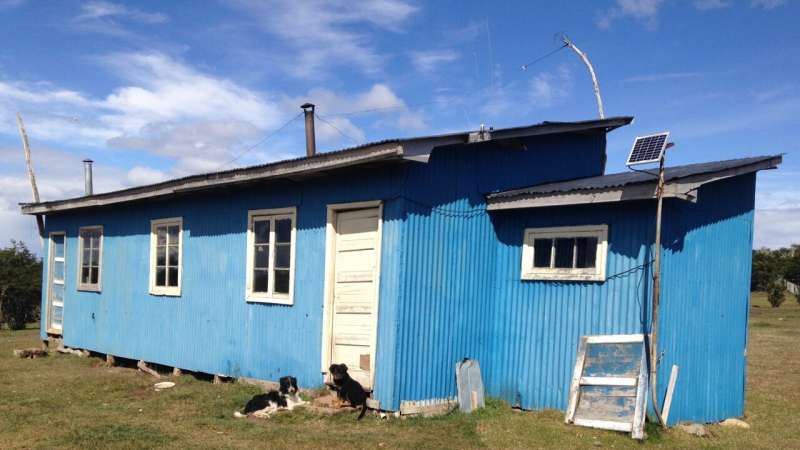Zoonotic disease in dogs has risen in southern Chile after deworming program canceled

A parasitic disease, canine echinococcosis, has increased in Chile’s Tierra del Fuego province after a governmental dog deworming program was canceled in 2004, according to a study from the University of California, Davis’ One Health Institute and School of Veterinary Medicine.
The study, published in the journal Zoonoses and Public Health, was conducted in collaboration with the Universidad de Chile and the Wildlife Conservation Society-Chile. It notes that this zoonotic disease can significantly impact people. Cystic echinococcosis—also known as hydatid disease—affects more than 1 million people worldwide and is the second most common cause of human deaths from parasitic disease in Chile.
It is caused by the tapeworm Echinococcus granulosus, which is shed by dogs and can infect people. Dogs acquire the disease by consuming viscera of infected animals, such as sheep, making it prevalent in sheep farms and rural communities.
The deworming program had reduced the prevalence of the disease in dogs in sheep farms from Chile’s Tierra del Fuego province from 68.4 percent in 1978 to 1.2 percent in 2002. The study found that without the intensive program, canine echinococcosis had increased to 6.9 percent as of 2016.
“This study points to a persistent risk of echinococcosis in domestic dogs at ranches in Tierra del Fuego, where sheep farming is the main economic activity,” said corresponding author Marcela Uhart, director of the Latin America Program within the UC Davis One Health Institute. “It highlights the need to reestablish Chile’s program to prevent this disease’s reemergence as a significant public health concern.”

Sheep, foxes and other factors
For the study, researchers sampled 356 domestic dogs and interviewed owners and workers at 45 sheep ranches across Tierra del Fuego. They conducted dog fecal sample testing to detect the disease at Universidad de Chile’s School of Veterinary Medicine in Santiago.
They found that the prevalence of canine echinococcus was higher on ranches where interviewees reported infrequent deworming. The number of sheep, frequency of sheep slaughter and feeding dogs with sheep viscera and other ranch operational characteristics also influenced the prevalence of tapeworm eggs.
Infection prevalence was also associated with reports of presence of culpeo foxes. All canids present on the island, including the native culpeo and the introduced chilla foxes, are known to be hosts of the disease.

“Considering the increasing presence of feral dogs in Tierra del Fuego, it is important to develop an ethical program to manage them and reduce the potential spread of echinococcus and other pathogens that can affect both human and wildlife health on the island,” said Alejandro Vila, a coauthor of this study and regional program manager for the Southern Cone at Wildlife Conservation Society.
“This study was undertaken through an international collaboration and could not have been possible without the participation of the ranchers of Tierra del Fuego,” said senior author Cristobal Briceño of Universidad de Chile. “The findings highlight the relevance of addressing health threats from a One Health perspective, including human, animal and environmental health.”
The study’s additional authors include Eric Eisenman, Ralph Vanstreels and Jonna Mazet of the UC Davis One Health Institute and School of Veterinary Medicine; and Alejandro Kusch of the Wildlife Conservation Society-Chile.
More information:
Eric James Lutz Eisenman et al, Increased prevalence of canine echinococcosis a decade after the discontinuation of a governmental deworming program in Tierra del Fuego, Southern Chile, Zoonoses and Public Health (2022). DOI: 10.1111/zph.13017
Citation:
Zoonotic disease in dogs has risen in southern Chile after deworming program canceled (2022, December 19)
retrieved 19 December 2022
from https://phys.org/news/2022-12-zoonotic-disease-dogs-risen-southern.html
This document is subject to copyright. Apart from any fair dealing for the purpose of private study or research, no
part may be reproduced without the written permission. The content is provided for information purposes only.
For all the latest Science News Click Here
For the latest news and updates, follow us on Google News.

